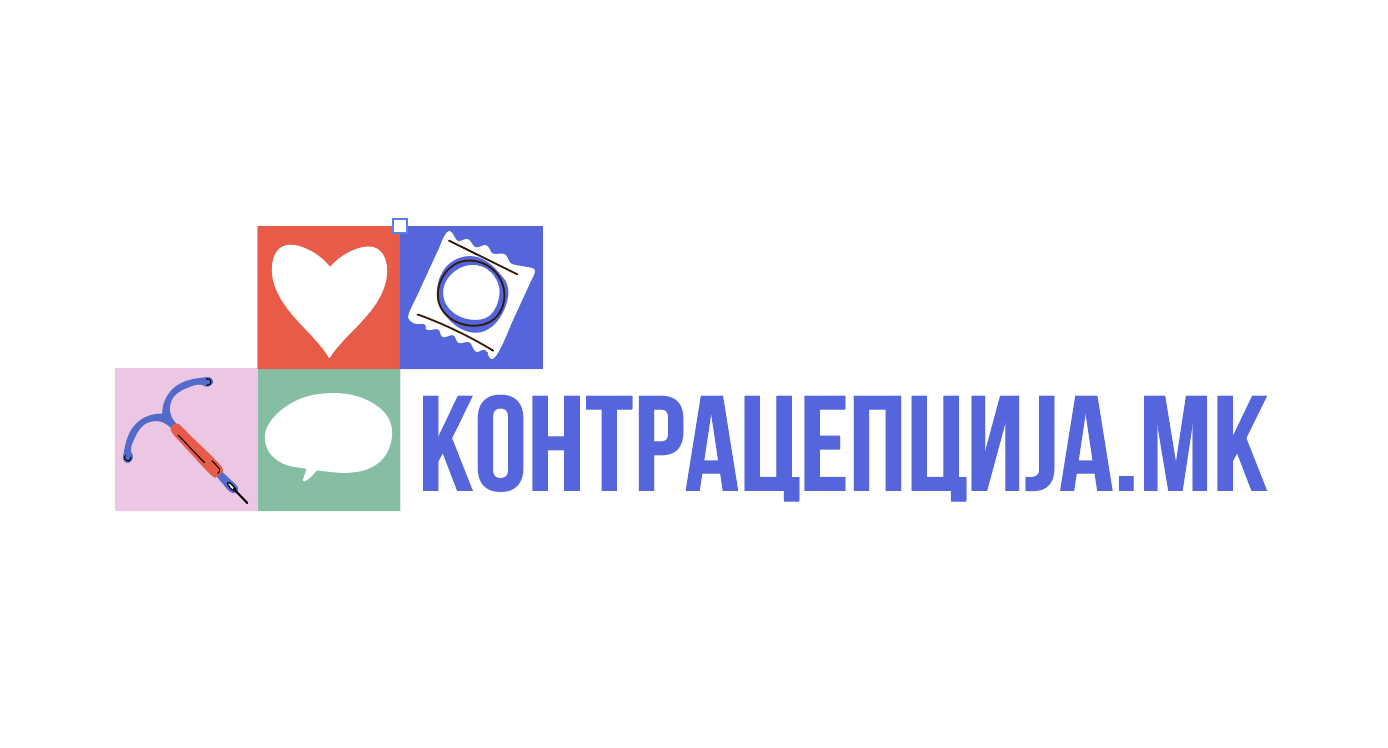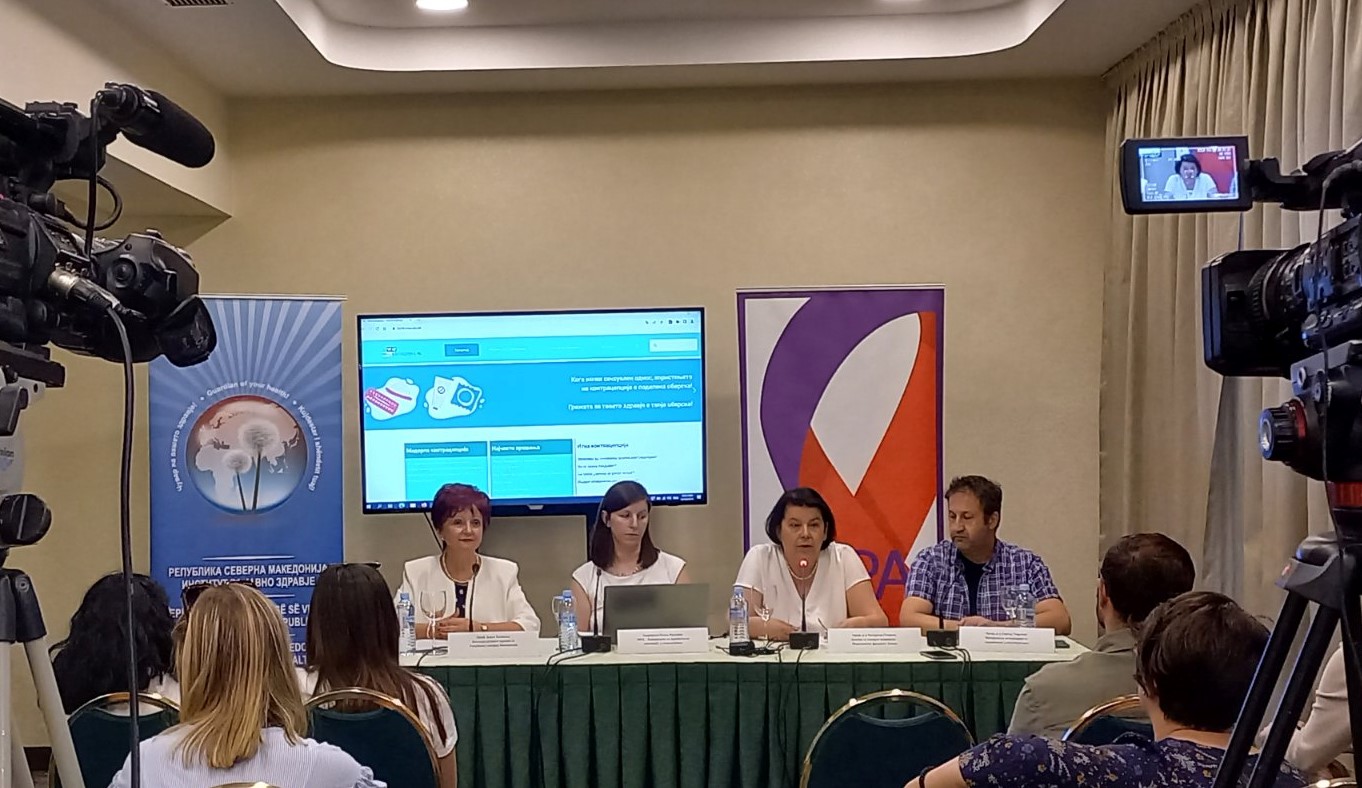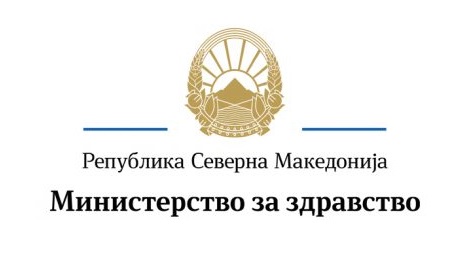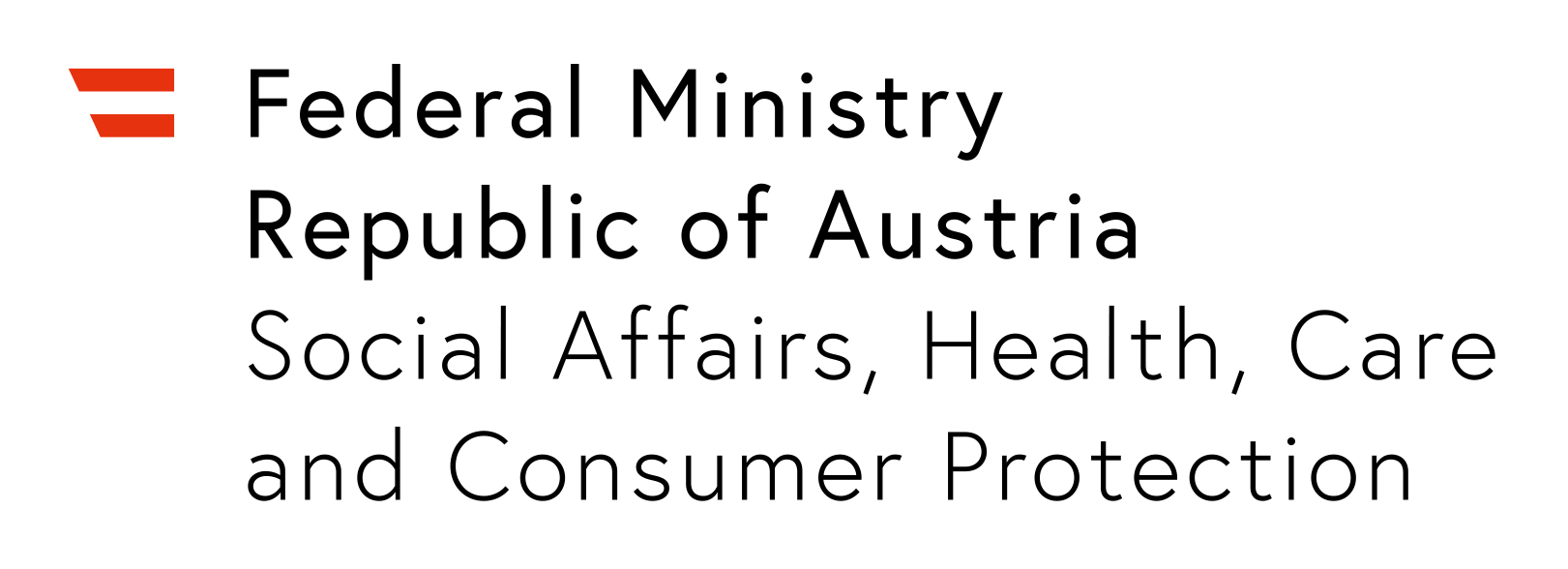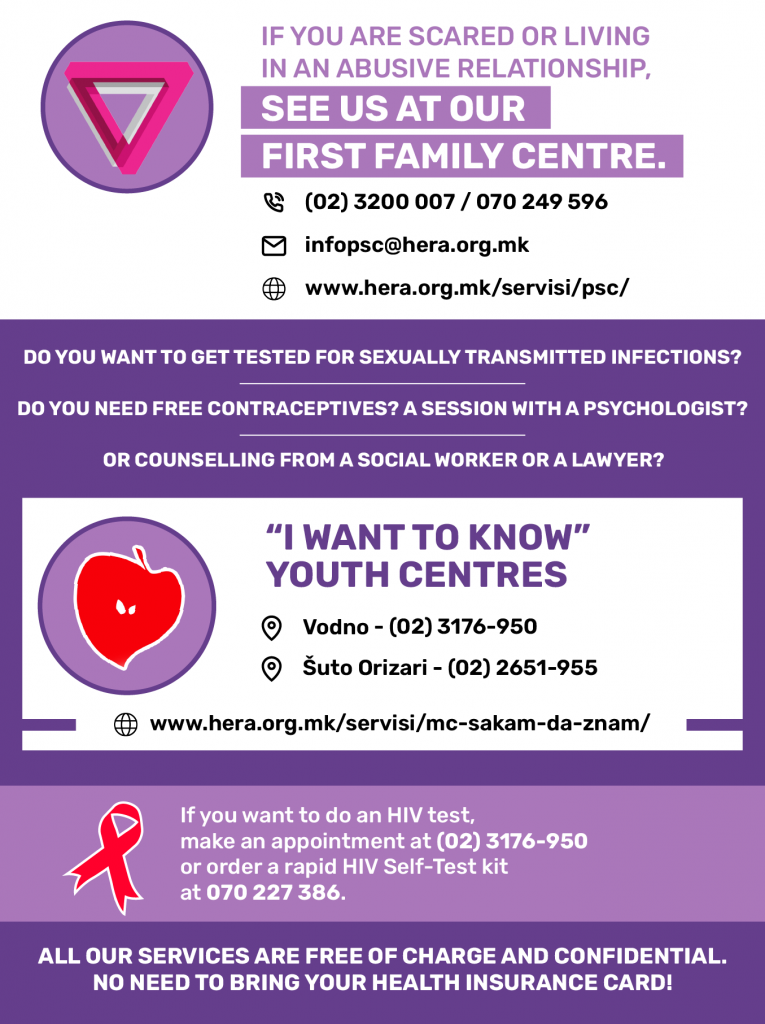With the joint bilingual website on contraception, the Public Health Institute and HERA facilitate the access to accurate and readily understandable information about the contraceptive methods and the sexual and reproductive healthcare of people.
30 June 2023 – At today’s press conference, the Public Health Institute of the Republic of North Macedonia and HERA – Health Education and Research Association presented the joint website on contraceptive methods https://kontracepcija.mk – the first website in the country that is fully dedicated to contraceptives and is supported by a national healthcare institution. Developed in cooperation with the Macedonian Association of Gynaecologists and Obstetricians (MAGO), the Family Medicine Centre – Faculty of Medicine in Skopje and the Macedonian Medical Association, and supported by the European Parliamentary Forum for Sexual and Reproductive Rights, this website has been envisioned to be a credible source of information in Macedonian and Albanian languages, especially for the young people, who often lack information about sexual and reproductive health.
“As part of the Action Plan for implementing the National Sexual and Reproductive Health Strategy and as the result from the excellent cooperation with HERA, the Public Health Institute concluded a Memorandum of Cooperation exactly with this civil society organisation in order to enhance the health education of all citizens, especially of the young people. We believe that this bilingual website will contribute for raising the awareness of the population about sexual and reproductive healthcare, and in that way, for reducing the undesirable consequences, including the unintended pregnancy and sexually transmitted infections”, was pointed out in her address by Prof. Elena Ḱosevska from the Public Health Institute.
“The idea to develop one such website originates from the European Parliamentary Forum for Sexual and Reproductive Rights, who have been regularly monitoring for some time now the situation with access to contraceptive information and services across Europe. That there is a lot to be done yet is evident from their European Contraception Policy Atlas. Setting up this website is an excellent step towards ensuring accurate and easily accessible information for everyone, particularly for young people in vulnerable situation who, according to our research, during the pandemic, did need, but could nowhere find, information about contraception, sexually transmitted infections, practicing of safer sex and similar information”, reported Andrijana Papić-Mančeva from HERA.
She presented the contraception website, emphasising that, in addition to information about how contraceptive methods work, how much they cost and where they can be accessed, the website also provides answers to the frequently asked questions about contraceptive methods, and allows for other questions to be posed to experts from the relevant health facilities and associations.
Although family planning can prevent deaths and diseases in mothers by postponing pregnancy, optimum spacing between two pregnancies, and preventing the unplanned and highly risky pregnancies and terminations of pregnancy, the use of modern contraceptive methods in the country is still very low.
“According to the Multiple Indicator Cluster Survey, 59.9% of women in the country that are married to or cohabitate with their partners use (or their partners use) some sort of contraceptive method, with only 14% using modern contraceptive methods, and the majority of the remaining couples, or 45.6%, practicing the withdrawal method By comparison, it has been estimated that, on a global scale, 44% of women (and their partners) use modern contraceptive methods, in contrast to 4% who use the traditional methods”, was indicated by Prof. Dr. Katarina Stavrić, Coordinator of the Family Medicine Centre at the Faculty of Medicine in Skopje.
Prof. Dr. Gligor Tofoski, President of MAGO, addressed the National Guidelines on Family Planning adopted in 2019 by the Ministry of Health and the Health Insurance Fund. “These Guidelines are yet another important step towards promoting the access to family planning information and services as they also involve the Primary Healthcare System doctors, including the family doctors, in providing contraceptive information and services. In this way, the protection of sexual and reproductive health of people significantly improves, especially in areas with insufficient gynaecologists”, he clarified.
In stark contrast to the clear commitments to improve the access to contraception information stands the fact that none of the available contraceptive methods in the country are covered by the Health Insurance Fund, despite the Government promising to do so back in 2017.

